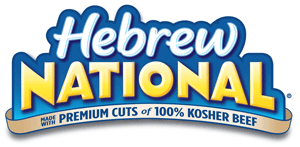Court papers include affidavit filed ‘under seal’ from former employee of slaughtering firm who fears retribution
AJW Staff Report
Plaintiffs suing ConAgra Foods, Inc., the parent company of Hebrew National, filed papers Monday in St. Paul federal court in opposition to the food giant’s motion to dismiss the lawsuit.
The class action lawsuit against ConAgra alleges that the hot dogs that the 11 plaintiffs bought and consumed are not actually kosher “as defined by the most stringent Jews who follow Orthodox Jewish Law,” as Hebrew National claims (6-22-12 AJW).
The memorandum opposing ConAgra’s July 26 motion to dismiss the lawsuit argues that the lawsuit does not require the court to make a religious determination about the definitions of kashrut, the Jewish dietary laws.
ConAgra had cited the “Establishment Clause” of the First Amendment, which “bars courts from entertaining disputes — such as this one — over the kosher status of food,” in its motion asking the federal court to dismiss the lawsuit.
However, the plaintiffs contend that “despite ConAgra’s contention, this Court is neither tasked with resolving religious disputes nor establishing any religious doctrine or kosher rules. This Court is simply asked to determine if ConAgra’s representations about the products it sold were misleading to consumers. The substance or theological correctness of kosher standards is not being challenged and this Court need not resolve any ecclesiastical or doctrinal questions.”
The memorandum, which runs to 90 pages with supporting exhibits, argues that federal court “only needs to determine whether ConAgra, in fact, followed its own stated standard — or fraudulently marketed an amorphous standard as an objective one in order to charge a premium for its product.”
The lawsuit demands $5 million for the plaintiffs and for other consumers who purchased Hebrew National products in the belief that they were strictly kosher. The case is before U.S. District Court Judge Donovan W. Frank.
As evidence that Hebrew National allegedly cut corners in the production of kosher meat for its hot dogs and sausages, the plaintiffs’ papers include an affidavit from Moshe Git, of Minnetonka, who worked as a mashgiach, kosher meat supervisor, for AER Services, Inc., at leased facilities at the Dakota Premium Foods plant in South St. Paul.
In his affidavit, Git, who is an occasional op-ed contributor to the American Jewish World, says that meat slaughtered under Islamic (halal) and Jewish supervision on different occasions was commingled at the plant, and that there were other deficiencies that rendered the meat unkosher.
A second affidavit, from “Witness #1,” was filed “under seal,” in order to protect the identity of a former AER employee who fears that if he is identified in public court records at this point, “his current employer will retaliate against him and that persons associated with AER could cause harm to himself or his family.”
AER Services is not a party to the lawsuit, Wallace, et al., v. ConAgra Foods, Inc. Both AER and Triangle K, the kosher supervisory firm for Hebrew National, have issued statements denying the allegations of slipshod practices in the production of kosher meat.
Hart Robinovitch, of the Minneapolis-based Zimmerman Reed law firm, who is based in the firm’s Scottsdale, Ariz., office, is the lead attorney for the plaintiffs. He told the AJW this week that ConAgra has five weeks to respond to the plaintiffs’ opposition to the motion to dismiss. A hearing on the case is set for Nov. 30 in St. Paul federal court.



















